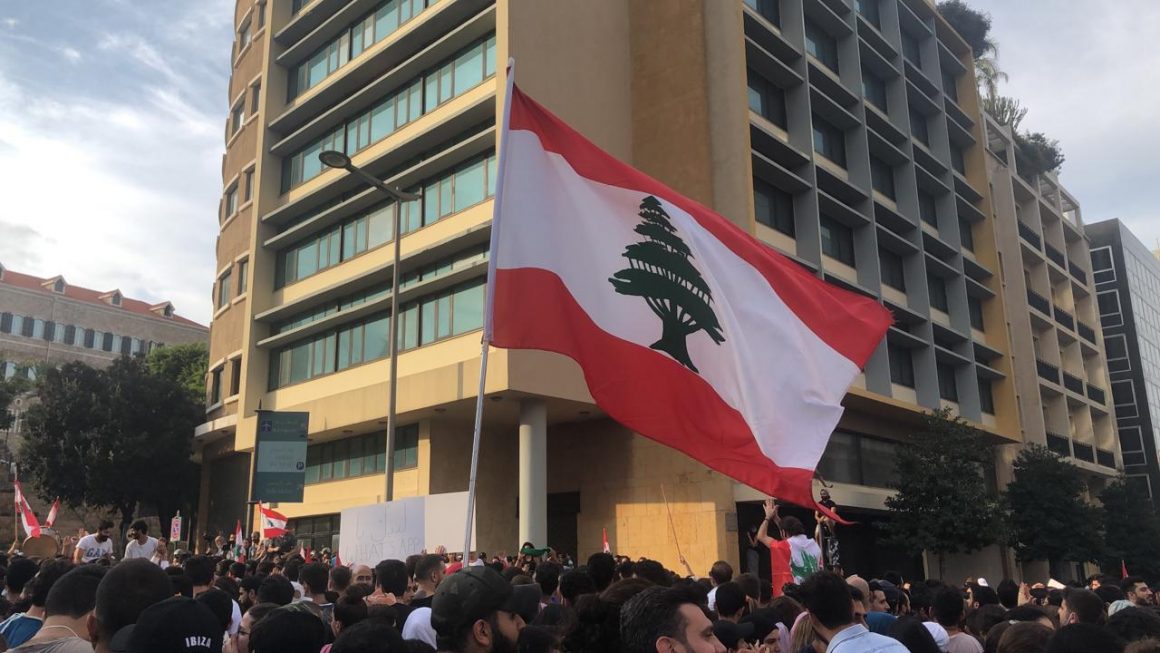
All of them means all of them
By Adam Idriss, November 7 2019—
Found along the coast of the Mediterranean, Lebanon sits between Syria and Palestine, only 11,000 square kilometres. Despite its size, Lebanon is a country rich in culture and is a symbol for multiculturalism — diversity of identity within the Arab world. The Lebanese people are among the most inviting, always eager to share a cup of strong Arabic coffee. Lebanon has a large population of refugees from Palestine and Syria, with one refugee for every four nationals. The high number of refugees within Lebanon places a strain on the resource accessibility throughout the country. The reality of Lebanon’s resource deficit became alarmingly apparent when fires broke out across the country on Oct. 3, 2019. More than 200 fires raged across the country, destroying large forested areas and quickly became the worst fire Lebanon has seen in decades. The fires left the Lebanese people angry and confused by the government’s obvious incompetence. Despite early warning signs, forests were neglected, and once fires had started raging, the country lacked the resources to fight the fires. Investigations found that government officials had embezzled money that was supposedly dedicated to fighting wildfires. The people were angry — they’d had enough of corruption and governmental indifference. When the government proposed a tax on using online phone calling services such as WhatsApp, the people of Lebanon had finally had enough.
On Oct. 17, 2019 protests broke out across the country.
The protests had one resounding demand “All of them means all of them.” From the north to the south, politicians across every party must step down from government. Years of a corrupt non-secular government have left Lebanon on the brink of economic ruin and have solidified a dysfunctional system, a system that fails to supply clean water and electricity across the country, while government officials can afford to live in French villas.
In 1975, Lebanon entered a bloody civil war lasting nearly three decades. During the civil war, thousands were killed and hundreds of thousands more were displaced. The country was left fractured and divided. Today the people of Lebanon are all too familiar with the dangers of turning against each-other.
With the scars left from the civil war still present in the hearts of the Lebanese people, the protests became a symbol of unity and peaceful resolution. Thanks to the strength of the Lebanese people, the protests have largely been peaceful. Protesters can be seen using symbolism and comedy to depict the will of the people and the necessity for change in Lebanon. Videos of people chanting, singing and dancing through the streets of Beirut are being shared to the millions of Lebanese living abroad. As a demonstration of national pride, Lebanese people abroad have responded by coming together to support change, holding similar peaceful protests outside Lebanese embassies across the world.
Unlike many of the protests previously seen during the Arab Spring, the protests in Lebanon are not using force in order to demonstrate their discontent. Rather, unification of a once fragmented people coming together has sent a powerful message to not only the Lebanese government but across the Arab world. Religious leaders walk down the streets of Beirut, hand-in-hand, as a way to declare that religion will no longer be used to divide the Lebanese people. However, what might be the strongest image so far was a drone-captured image of a human chain from the south to the north, spanning the entirety of the country. Today, the protests near their third week with no sign of slowing down. Protests have managed to capture the attention of an otherwise indifferent government and a massive milestone was reached when Prime Minister Saad Hariri decided to step down from his position. Accomplishments such as the resignation of the prime minister has kept the Lebanese people hopeful, but the message still remains — “All of them means all of them.” There will be no end to protests until the Lebanese people experience actual change.
As a young Lebanese-Canadian I could not be prouder of my people, watching them chant together for revolution and share in their collective suffering. It has made me hopeful for the future of Lebanon. However, like many Lebanese, I am afraid of outside influence distorting the message of the protests. I am afraid of Lebanon becoming an example of a failed revolution or worse even, slipping into another civil war. Despite these feelings, now is not the time for fear, not while the people of Lebanon stand proudly united against corruption. Now is the time to be hopeful of Lebanon’s future and to rejoice in every victory we can get.
This article is part of our Opinions section and does not necessarily reflect the views of the Gauntlet‘s editorial board.
